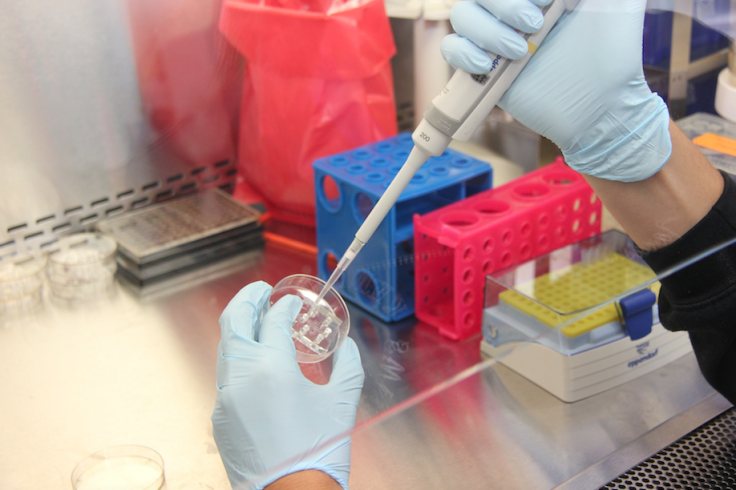Scientists Finally Understand How Invasive Breast Cancer Works: Is New Treatment Next?

About one in eight women will develop breast cancer in their lifetime, and each year more than 40,400 U.S. women are expected to die from the disease. Despite many advances, the cancer remains a formidable enemy for patients and doctors alike; however, a team of researchers from the University of Zurich in Switzerland may have figured out how to kill a type of cancer cell that they've never been able to before.
Current forms of breast cancer therapy use antibodies, like trastuzumab and pertuzumab, to recognize and target the gene that plays a role in the development of the disease: HER2. Unfortunately, though, the antibodies can only deactivate cancer cells, meaning they can be reactivated at any time. In some invasive forms of breast cancer, an excess of HER2 leads to the uncontrolled growth of cells, which makes it much harder to treat.
For their study, researchers aimed to understand why the antibodies only slow invasive tumor growth rather than kill them outright. They found that HER2 simultaneously uses multiple signaling pathways to grow and reproduce cancer cells, including one that leads to a central hub in the cell called RAS. Since commonly prescribed antibodies are designed to only block one of these signaling pathways, these findings could inspire new, targeted treatments.
“It is [the RAS] protein that is responsible for reactivating the growth signal emitted by the HER2 receptor,” explained Andreas Pluckthun, director of the department of biochemistry at the University of Zurich, in a press release. “The antibodies lose effect and the cancer cells continue to proliferate.”
Not only did the researchers discover why current antibodies are only semi-effective, but they developed a solution to the problem. The team designed a protein compound capable of binding itself to two HER2 receptors and changing their spatial structure. It blocks any growth signals from reaching the cell’s center, leaving the cancer cells to stagnate and die. What's more, the protein compound targets cancer cells only and leaves healthy cells unharmed. Therapy in mice has proven effective, shrinking tumors without otherwise hurting them.
The success of the treatment lies in its active ingredient: Designed ankyrin repeat proteins or DARPins for short. DARPins are often pitted as alternatives to antibodies since it can quickly reproduce and bind to HER2. Pluckthun has previously experimented with these proteins in his lab, and the team hopes to bring the substance to clinical trials in order to test them in human patients as soon as possible.
“Now that we have identified the Achilles heel ofHER2-positive cancer cells, new opportunities are opening up for treating invasive tumor types like breast cancer more effectively in the future," he said.
Source: Tamaskovic, R, Schwill M, Nagy-Davidescu G, Jost C, Schaefer D, Verdumen W. Intermolecular Biparatopic Traping of ErbB2 Prevents Compensatory Activation of PI3K/AKT Via RAS-p110 Crosstalk. Nature Communications. 2016.



























